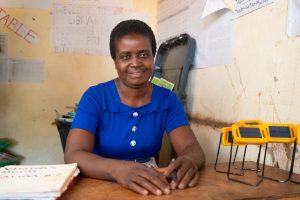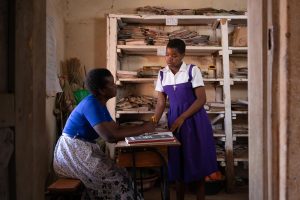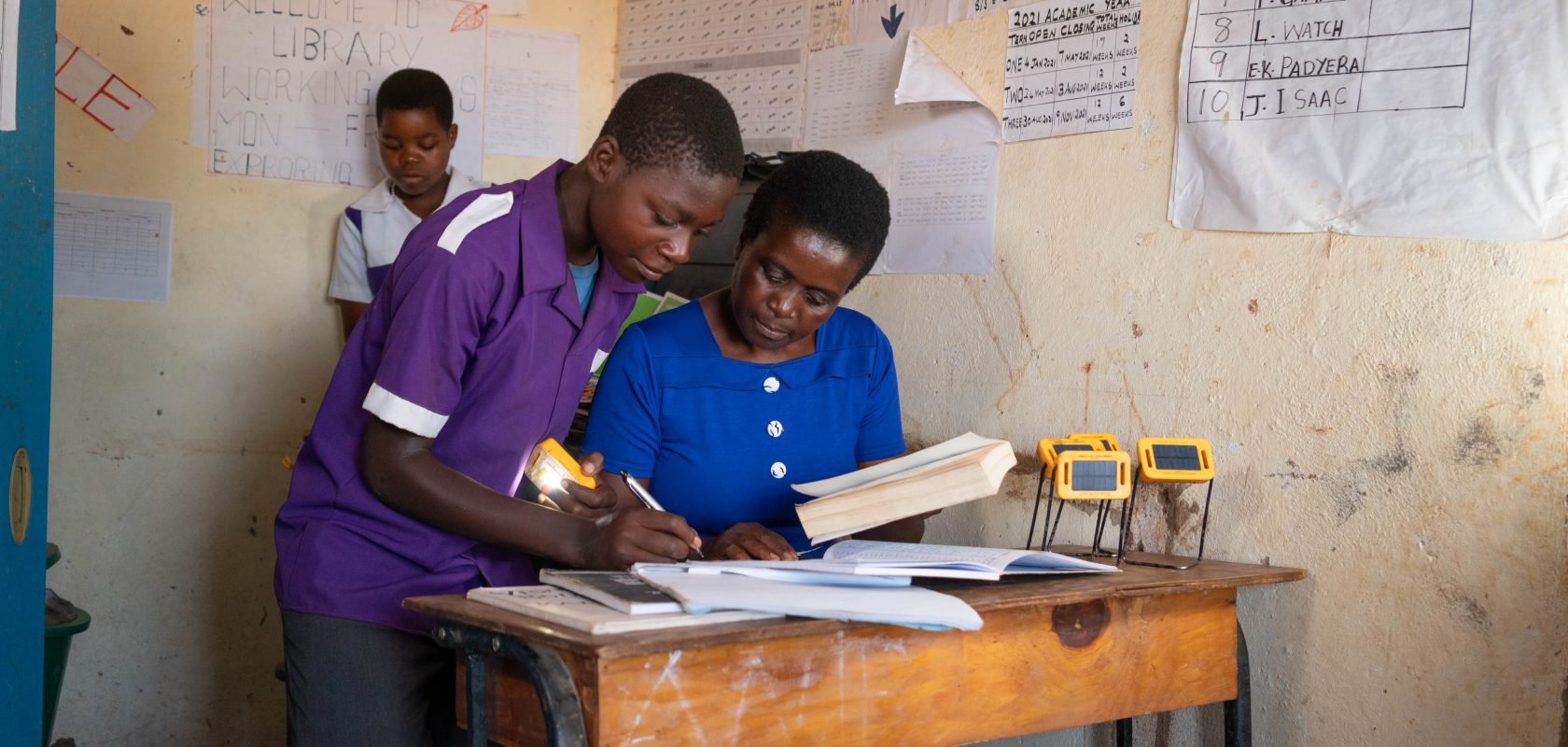Beatrice Maluza is the head teacher of Kalira School in Tembetembe, Malawi, a rural, unelectrified village in Dezda District. While there are many challenges working in such a remote area, Beatrice feels it is her calling to teach here.

“My name is Beatrice Maluza the head teacher of Kalira School. It is my calling to accept the responsibility to work in rural area, so that we can educate leaders of tomorrow.”
Working in a rural area poses many challenges for teachers like Beatrice.
“The challenge with most of the children is to have breakfast every morning. They come to school hungry and it is difficult for them to listen to what the teacher is saying. They also face travelling difficulties. During the rainy season, it becomes difficult for the children to cross big rivers. Some students learn outside the classrooms because we don’t have enough classes. Besides that, when there is rainfall or too much heat from the sun, we send some of the students back home because we don’t have enough classrooms.”
Alongside these difficulties, the lack of electricity at school and home forces means that students are unable to study after the sun sets.
“At first we had a lot of problems with studying, because their parents couldn’t afford to buy torch batteries.”
But everything changed for students and teachers when Kalira School received a light library, bringing solar lights and books to Beatrice’s classrooms.

Beatrice Maluza speaks to Rhoda Unyolo as she rents a light. Chris Gagnon/Book Aid International/SolarAid.
“The light library is important because it assists children with reading. Most of the children’s reading abilities have improved. Currently, because of the availability of torches in the light library, students are able to borrow the torches at K10 (less than 1p) every day to study in their homes.”
“As teachers here at Kalira, the light library is helping us. We normally finish our duties at 4:30 pm and so we arrive home at night. As such, we also allow teachers to borrow the solar lights so that they can make lesson plans for the following day. They can prepare their teaching resources at night so that the following lesson should be well implemented. Teachers also had problems with students who couldn’t read. Now teachers and children are moving together because students are able to read different books, and also they can read notes given by the teacher.”
As a teacher, her hopes are big for her students.
“I expect that many students will know how to read and write. The class performance will also improve. Our primary focus was on standard 8. We’ve seen that the light library has improved performance in standard 8 because last year 3 students were selected into secondary schools.”
Together, we are making light work for teachers like Beatrice.
